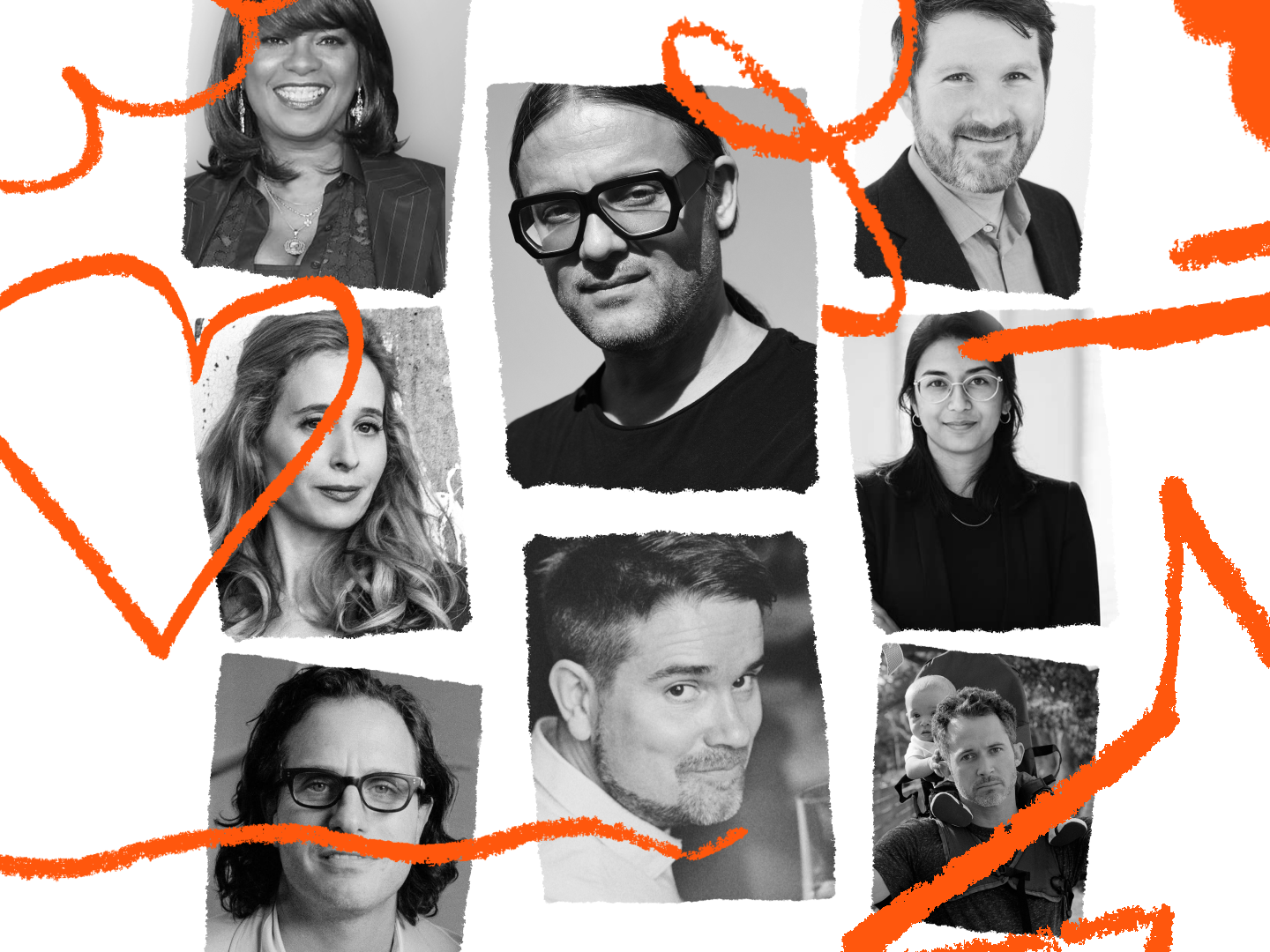Season 3: click to listen
Episode 1: Ben & Jerry on Fighting Injustice with a Spoon Full of Sugar
In the season kick-off, Damian talks to Ben Cohen and Jerry Greenfield, the co-founders of Ben & Jerry’s, about the company's founding principles and keeping its mission on course as one of the world's most recognised ice cream brands. The pioneers of responsible business share why the social mission should never be a ‘job done.’ Whether partnering with local businesses or taking fierce action against police brutality, the duo’s campaigning zeal is still as bright as ever.
Episode 2: Brittany Kaiser on Standing Up to the Big Data Baddies
In this revealing conversation with Damian, Brittany Kaiser shares what happened behind closed doors at Cambridge Analytica. She talks about Cambridge Analytica's involvement in Donald Trump's presidential campaign, how the company used our data against us, and her experience as a whistle-blower. Plus: The things she wants everyone to know about data privacy.
Episode 3: Eli Pariser on Building Public Parks Online
On today's episode, Damian talks to Eli Pariser, author of The Filter Bubble and co-founder of New Public, about designing digital public spaces for the future. Using examples from across the globe, Eli imagines how online communities can work on bringing people closer together instead of driving us further apart.

Episode 4: Justin Willman on Magic, Illusion, and Manipulation
Damian explores the delightfully manipulative power of magic with the magician and comedian Justin Willman. Together they unpack the basic human principles underlying the ‘attention economy’, subliminal messaging, and the element of surprise.
Episode 5: Nadya Tolokonnikova on Activism, Art and Accepting Vulnerability
Nadya Tolokonnikova brought Russian punk feminism into existence with the creation of Pussy Riot, a music group and conceptual art piece in one. The Putin government put her in jail for two years after one of her performances. Despite the risks, she's spent the past decade working at the intersection of art and activism. In our latest episode, Tolokonnikova speaks with Damian about what's happened since the early days of Pussy Riot, why she believes in NFTs and the growth of digital art, and her emotional growth and current projects, including a unique performance she has planned at Chernobyl.
Episode 6: Aaron Koblin on Art, Data, and Virtual Reality
Aaron Koblin's dazzling data art projects have animated Johnny Cash's music and brought an Arcade Fire music video to viewers' childhood homes. On today's episode, Damian talks to the artist, designer, and co-founder of the VR company Within about what it means to be a tech optimist today, how VR might lead to more compassion, and how to save ourselves from the tech beasts we've created.
Episode 7: Noreena Hertz on Generation Lonely and Craving Connection
Loneliness affects everything from our physical health to our voting choices, according to research from this episode’s guest, Noreena Hertz. Her book, The Lonely Century, chronicles a loneliness crisis across the developed world. On this episode, Damian and Noreena discuss how technology, neoliberalism, open offices, and cities contribute to loneliness, and what people, workplaces, and governments can do to bring people together.


Episode 8: Nichelle Tramble Spellman on the Writer’s Responsibility and Representation in Hollywood
Damian meets Nichelle Tramble Spellman, the creator and showrunner of the Apple TV+ series Truth be Told. Nichelle discusses representation in Hollywood, being true to her characters, and how she’s supporting the next generation of filmmaking talent—and stories not often seen on the screen—with her production company The 51. Her work writing and producing for television influences not only what stories are told, but also how audiences see the world.
Episode 9: Moon Ribas and Neil Harbisson on Life as Cyborgs
To perceive colour for the first time, Neil Harbisson implanted an antenna into his skull. To experience the movement of earthquakes within her body, Moon Ribas implanted sensors into her feet. Damian meets the two cyborg artists and co-founders of the Cyborg Foundation to find out how technology has altered their perceptions of reality, blurred the lines between human and machine, and tested the boundaries of society.
Episode 10: Martha Lane Fox on Responsible Tech, Social Justice, and the House of Lords
In this episode, Damian talks to responsible tech evangelist (and WeTransfer Board Chair) Martha Lane Fox. As a Crossbench Peer in the United Kingdom House of Lords, a board member of Twitter and Chanel, and an early startup success, Martha has a unique voice in some of the most influential rooms on the planet. In this conversation, she talks about bringing a European perspective to Twitter, how video conferencing has made it easier to speak up in the House of Lords, and how she uses her many positions for good.


Episode 11: Bishop Rose Hudson-Wilkin on Challenging the Status Quo
When Rose Hudson-Wilkin was first called to church ministry as a child, the Church of England did not allow women to be priests. But being told what she could and couldn’t do didn’t deter her then, and it doesn’t deter her now. On this episode, Bishop Rose speaks to Damian about her journey from growing up in Jamaica to becoming a bishop in the Church of England—the first Black woman allowed the position. She talks about using her role to challenge discrimination, stand up for the vulnerable, and reaffirm the power of community.
Episode 12: Xiaowei Wang on What Rural China Teaches Us About Technology
In this episode, Damian talks with the artist, writer, and coder Xiaowei Wang about their surprising findings about modern technology from their travels in rural China. Expanding on their book, Blockchain Chicken Farm, Wang shares models for decolonizing tech, challenges our ideas about rural vs urban innovation, and calls for a more expansive vision for global advancement (instead of a tech silver bullet).
Episode 13: Dan Keeling on How Culture and Curation Matter for the Future of Wine
In this episode, Damian talks wine with Dan Keeling, the co-founder and editor of the bright, funny, and boisterous Noble Rot Magazine, and the co-founder of the Noble Rot restaurants in London. Dan talks about leaving his plum position in the music industry—one he earned after discovering acts like Coldplay and Lily Allen (maybe you've heard of them)—to make a magazine about wine. In this conversation, Dan talks about how sharing his enthusiasm for wine is rapidly changing the culture of it.
"Isha Datar is on a mission to change the way we eat. On this episode, she shares what she's learned from more than a decade at the forefront of "cellular agriculture".
Episode 14: Cyrill Gutsch on Harnessing Creativity to Tackle Ocean Plastic
Damian interviews the founder of Parley for the Oceans Cyrill Gutsch about his journey from product designer to environmental leader. Focusing on plastic, Cyrill talks about using art to inspire action, upcycling plastic collected from the ocean, and pioneering new materials that are better for the earth. But his vision is bigger than that. Cyrill has found a way to capture our attention, and by bringing ocean plastic to the forefront, has given us a path to a better future.
Episode 15: Isha Datar on Feeding the World with Lab-Grown Meat
Isha Datar is on a mission to change the way we eat. On this episode, she shares what she's learned from more than a decade at the forefront of "cellular agriculture," a term she coined. She talks about how lab-grown meat could not only reshape and reimagine the future of food, but also how it could dramatically scale back farming's environmental impact.
Episode 16: Davis Guggenheim on What Makes a Story Worth Telling
On this episode, Damian talks with the acclaimed director and founder of Concordia Studio, Davis Guggenheim. Davis shares the story of how he turned Al Gore’s dry slide deck about global warming into an Academy Award-winning film that transformed the public’s understanding of climate change with his documentary An Inconvenient Truth (2006). He also explains the ingredients of a good documentary, breaks down how they’re realized in his films about Malala and U2, and talks about how storytelling, when done right, has the power to unite us.
Check out our Influence Podcast page
Influence is a production of WeTransfer, produced in association with Reasonable Volume.

